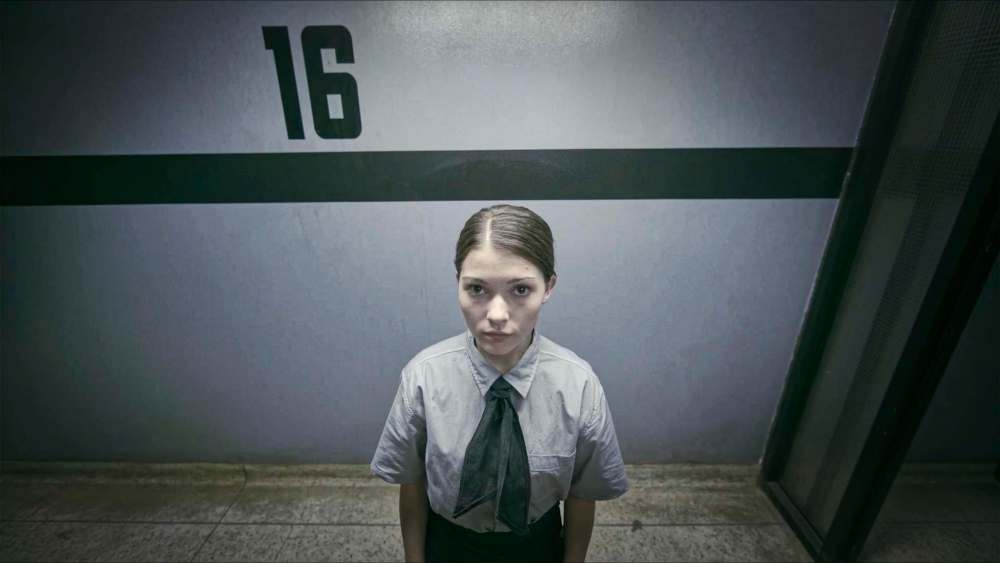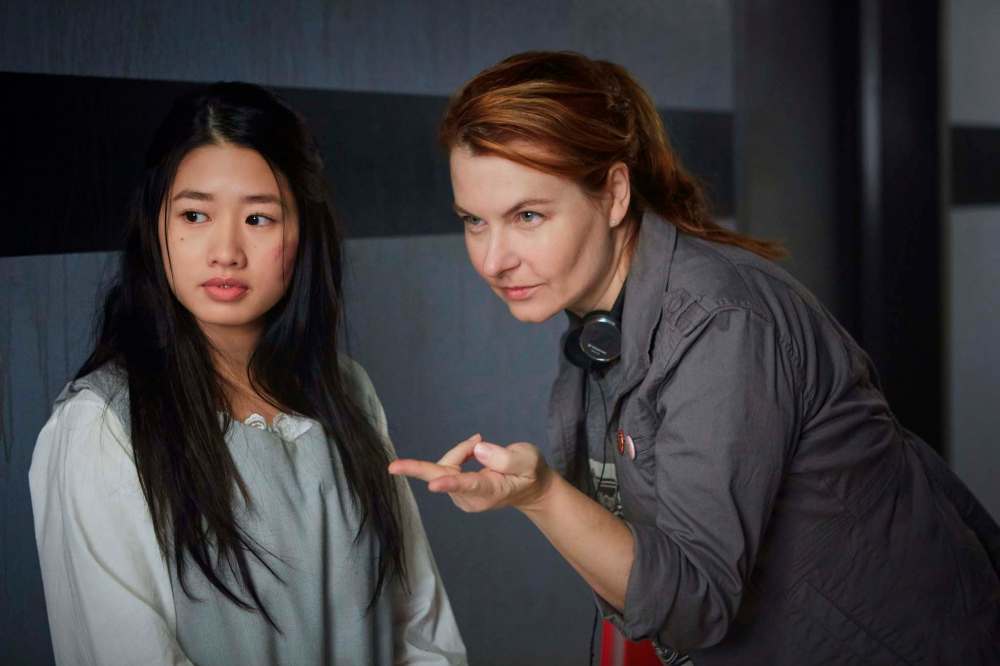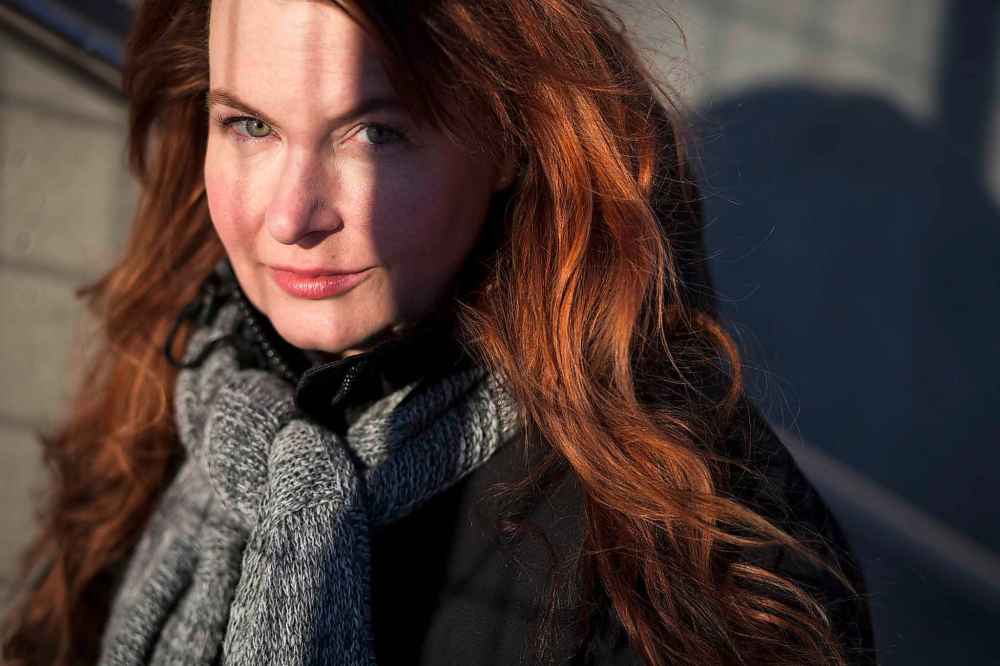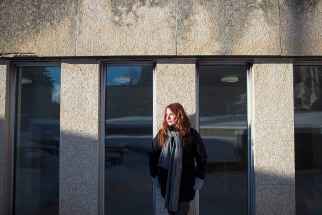Levelling up Winnipeg-raised filmmaker battled naysayers, negativity to create female-focused sci-fi
Read this article for free:
or
Already have an account? Log in here »
To continue reading, please subscribe:
Monthly Digital Subscription
$0 for the first 4 weeks*
- Enjoy unlimited reading on winnipegfreepress.com
- Read the E-Edition, our digital replica newspaper
- Access News Break, our award-winning app
- Play interactive puzzles
*No charge for 4 weeks then price increases to the regular rate of $19.00 plus GST every four weeks. Offer available to new and qualified returning subscribers only. Cancel any time.
Monthly Digital Subscription
$4.75/week*
- Enjoy unlimited reading on winnipegfreepress.com
- Read the E-Edition, our digital replica newspaper
- Access News Break, our award-winning app
- Play interactive puzzles
*Billed as $19 plus GST every four weeks. Cancel any time.
To continue reading, please subscribe:
Add Free Press access to your Brandon Sun subscription for only an additional
$1 for the first 4 weeks*
*Your next subscription payment will increase by $1.00 and you will be charged $16.99 plus GST for four weeks. After four weeks, your payment will increase to $23.99 plus GST every four weeks.
Read unlimited articles for free today:
or
Already have an account? Log in here »
Hey there, time traveller!
This article was published 22/03/2019 (2457 days ago), so information in it may no longer be current.
The film Level 16 is a grim dystopian tale in which girls spend their lives in a barren facility being indoctrinated with lies, until they learn the horrible truth of their existence upon turning 16.
MOVIE PREVIEW
Level 16
Written and directed by Danishka Esterhazy
● Starting Thursday, March 28
● Cinematheque
● 102 minutes
The film, opening Thursday at Cinematheque, has been a critical sensation in some of the genre festivals it’s played, including Fantastic Fest in Austin, Texas.
But for Winnipeggers, it may be notable that Level 16 was at least partially inspired by writer-director Danishka Esterhazy’s experience going to Nelson McIntyre Collegiate.
The Edmonton-born, Winnipeg-raised Esterhazy, 49, shot two low-budget independent films in Manitoba, the gothic-frontier romance Black Field (2009) and H & G (2013), a neorealist spin on the Hansel and Gretel fairy tale.
But if things had gone according to her plan, Level 16 would have been her debut project after studying film in Toronto.

“I wrote it right after going to the Canadian Film Centre and I was convinced it was going to be my first feature,” she says. “But I just couldn’t get it funded. I never gave up on it and we were chasing down funding for that. But year after year, I was getting told no.”
One problem she faced was the absurd notion that women and science fiction don’t mix.
“When I started pitching this film, I would get these really blank stares and people would say outrageous things like: ‘Women don’t like science fiction.’ ‘Women don’t go to science fiction.’ ‘People who do like science fiction would never want to see a story about women.’
“The stuff was ridiculous,” Esterhazy says. “They had a really narrow understanding of that world and that was a big barrier to raise funding.”
“When I started pitching this film, I would get these really blank stares and people would say outrageous things like: ‘Women don’t like science fiction.’ ‘Women don’t go to science fiction.’ ‘People who do like science fiction would never want to see a story about women.’
It may be the film was simply ahead of its time. To garner interest, Esterhazy created a “lookbook” designed to give prospective producers an idea of how the film might look using photographs and illustrations. She included a shot of Margaret Atwood’s novel The Handmaid’s Tale and was told she should remove it, because the movie adaptation — a 1990 flop starring Natasha Richardson and Faye Dunaway — had shown it was not a marketable concept.
“They said, ‘You’re going to make yourself look bad if you reference that,’ and I was like, ‘No, it’s a really good novel.’
The successful Hulu TV adaptation of Atwood’s book changed that perception — in fact, it may have been decisive in getting her film made, Esterhazy says.
“People were finding it super-engaging and really well done and very intelligent. And I was saying: ‘Yes that’s what we’re trying to do!’ So that helped.”

The Time’s Up and #MeToo movements likewise helped get the project on the industry front burner.
“It really means the people are suddenly aware of inequality in the film industry, so when we bring it up, we’re not totally out of left field.”
Esterhazy felt the time was right for stronger representation from women in the science fiction-horror genre.
“I’ve been reading science fiction and I’m a huge fan of it and I have not seen a lot of science fiction about women, for women, made by women,” she says. “So when I became a filmmaker, I thought, ‘That’s one of the things I’d like to contribute.’ “
“I’ve been reading science fiction and I’m a huge fan of it and I have not seen a lot of science fiction about women, for women, made by women. So when I became a filmmaker, I thought, ‘That’s one of the things I’d like to contribute.’ “
While science fiction may offer a far-out premise, it’s always important to base it on real experience. For that, Esterhazy only had to look back on her life in public school.
“I thought about my own feelings in high school in Winnipeg at Nelson McIntyre Collegiate,” she says, unwistfully. “I thought about how much I hated high school here.
“Actually, I thought that the educational systems here were extremely oppressive and didn’t encourage free thought or critical thanking and didn’t really do anything to challenge or enlarge you intellectually,” she says.
“Really, they were just kind of schools of conformity (where you) learn how to behave, keep your head down and not challenge authority,” she says, adding: “I had green spiky hair and I was one of those kids who got in trouble because I wouldn’t stand for God Save the Queen and I was constantly in battle with the authorities.”

Esterhazy ultimately ended up making her dream project in Hamilton, Ont., not Manitoba, after failing to get traction in the local industry.
“I’ve been spending my winters in San Francisco where my husband, Jonathan, works,” she says. “We finally sold our house in Winnipeg.”

She now lives in Greeley, Ont., near Ottawa, “because we have family there and it’s very close to Toronto. After sitting here in Manitoba for decades, suddenly I never know where I’m going to be from month to month.”
The filmmaker has another movie she’s hoping to shoot in Ontario, a winter thriller for which she’s been writing a script for a few years. She’s optimistic it will be green-lit by the end of 2019.
Since December, Esterhazy has been in Cape Town, South Africa, shooting her next project, also in the horror genre, for the Syfy Channel. The Banana Splits is an unlikely thriller based on the HR Pufnstuf-like late-’60s variety show The Banana Splits Adventure Hour. In the story, a boy goes to a taping of the show for his birthday, and things take a violent, gruesome turn.
“There’s lots of blood,” Esterhazy said. “It’s going to be super fun.”
randall.king@freepress.mb.ca Twitter: @FreepKing

In a way, Randall King was born into the entertainment beat.
Our newsroom depends on a growing audience of readers to power our journalism. If you are not a paid reader, please consider becoming a subscriber.
Our newsroom depends on its audience of readers to power our journalism. Thank you for your support.











